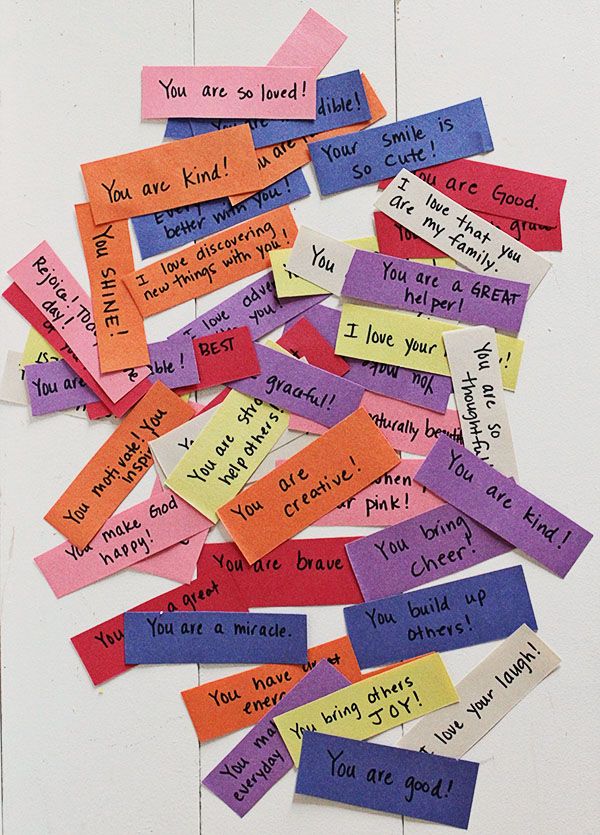In this article we’ll review seven common happiness quotes that aren’t as true as they seem…
“Happiness is a choice.”
“A man is usually about as happy as he has made up his mind to be.” – Abe Lincoln
These quotes imply that we simply decide to be happy or not. This is true – but only in part. According to research by Lyubomirsky and company, there are three broad determinants of happiness: genetics, intentional behavior (internal), and circumstances (external) (1). So while decision plays a role, happiness is also influenced by factors outside of our control.
“Happiness comes from within”.
“We don’t see the world as it is, we see it as we are.”
These quotes suggest that happiness is a direct product of our internal conditions. While it’s true that sustainable happiness must be grounded within, it can certainly come from outside as well. The longest running psychological study of its kind from Harvard University has tracked people for over 80 years across three generations and various demographic backgrounds (3). The study has found that the only meaningful predictor of long-term health and happiness is the quality of our relationships (3).
It’s also been shown that happiness rises with increased income — to a point (about $88,000 in today’s dollars) (4). Again, cultivating happiness within is crucial; however, an honest assessment shows that external forces such as income and relationships have a major impact our happiness.
“The only possible moment of happiness is the present.”
“Happiness is here and now”.
It’s been shown that mindfulness of the present moment enhances happiness. I would argue, however, that these quotes are only about 80% true. That’s because achievement or progress is a component of happiness. One of the most established models of happiness is Martin Seligman’s PERMA: Positive emotion, Engagement, Relationships, Meaning, and Achievement (6). He believes that setting and achieving goals can also be a source of happiness.
Of course we don’t want to make our happiness dependent upon some future goal, but we can derive genuine happiness from making progress towards a better future.
“Happiness is a state of mind”.
This quote is again, partially true. Happiness is a state that we experience but that’s only half the picture. Daniel Kahneman explains that when it comes to happiness, we have “two selves”. There’s the experiencing-self and the remembering-self (2). Take the example of going on a date: it’s a lovely evening with a great dinner and an entertaining move. But at the end of the night you get in an argument. Your experiencing-self had several hours of happiness and only a few minutes of displeasure; however, your remembering-self colors the whole night as bad.
Our happiness can be assessed from the experience perspective (happy in your life) and from the remembering or reflective perspective (happy with your life). Both types of happiness are important.
“If I could have ________________ I’d be happy…”
“I could never be happy if ______________…”
If we’re honest we’ve probably caught ourselves saying one of these quotes to ourselves before. If we could just find the right person or get our dream job then we’d be happy. But if we lost someone we loved or had our lives ruined we could never be happy.
An incredible study from 1978 shows otherwise. The study found that on average, lottery winners are not any happier than normal people. And that they are only a little bit happier than people who were paralyzed in an accident (5). In short, our happiness tends to adapt. It’s unlikely that one thing will lead to lasting happiness or unhappiness.
“There is only one happiness in this life, to love and be loved.” – George Sand
I agree that loving relationships are the most powerful source of happiness (3). However, we shouldn’t overlook other crucial factors identified by Martin Seligman. Research finds that engaging work that helps us feel a sense of flow, meaning – using our strengths to serve something larger than us, and achievement are also sources of happiness (6).
“Happiness cannot be pursued, in must ensue.” – Viktor Frankl
This quote implies that if we directly pursue happiness then we’ll surely miss it. It has to be spontaneous or natural. While this is true in some cases, there is evidence to suggest that actively engaging in certain happiness practices (called positive interventions) can reliably increase happiness (7). In a 2005 study, Seligman and company trained participants in five positive interventions designed to increase happiness. The researchers found that three out of the five interventions lastingly increased happiness and decreased depressive symptoms.
We can – thankfully – pursue happiness quite effectively when we do it correctly.
If you liked this article on the science of happiness, then I think you’d enjoy getting an email from me every two weeks where I share practical insights and stories about happiness. Try the email by leaving your email address in the form at the bottom of this page.
- Kennon M. Sheldon & Sonja Lyubomirsky (2019): Revisiting the Sustainable Happiness Model and Pie Chart: Can Happiness Be Successfully Pursued?, The Journal of Positive Psychology, DOI: 10.1080/17439760.2019.1689421
- Kahneman, D., & Riis, J. (2005). Living, and Thinking about It: Two Perspectives on Life. The Science of Well-Being, 285- 304. http://dx.doi.org/10.1093/acprof:oso/9780198567523.003.0011
- Waldinger, Robert, director. What Makes a Good Life? Lessons from the Longest Study on Happiness. TED, TEDxBeaconStreet, Nov. 2015.
- Kahneman, D. & Kruegar, B. (2006). Developments in the Measurement of Subjective Wellbeing. Journal of Economic Perspectives, V20-1, 3-24.
- Brickman, P., Coates, D., & Janoff-Bulman, R. (1978). Lottery winners and accident victims: Is happiness relative? Journal of Personality and Social Psychology, 36(8), 917–927. https://doi.org/10.1037/0022-3514.36.8.917
- Martin Seligman (2018): PERMA and the building blocks of well-being, The Journal of Positive Psychology, DOI: 10.1080/17439760.2018.1437466
- Seligman, M. E. P., Steen, T. A., Park, N., & Peterson, C. (2005). Positive Psychology Progress: Empirical Validation of Interventions. American Psychologist, 60(5), 410–421. https://doi.org/10.1037/0003-066X.60.5.410

